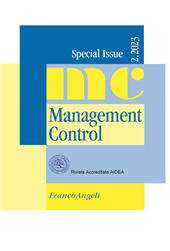Aligning Integrated Data Management with Corporate Reporting : The role of sustainability reporting
65-81 p.
The EU/2014/95 Directive represents a point of discontinuity in corporate reporting which has produced several effects on corporate practices and communication. Corporate control systems also had to be updated to include financial and non-financial issues such as environmental, social and governance (ESG) issues within the control and reporting mechanisms. Integrated data management can represent a crucial tool for managing the changes in progress and improving performance.
This study aims to investigate the relationship between integrated data management and corporate reporting by assessing whether the Directive has had an impact on the implementation of integrated systems. The analysis of two virtuous cases in the field of sustainability reporting, as well as a public interest entity, highlights the effects of the Directive on corporate control and data management. The findings suggest different effects on companies with different sustainability reporting experience. The study has theoretical and practical implications contributing to the literature about integrated data systems and sustainability reporting. [Publisher's text].
Forma parte de
Management Control : supplemento 2, 2023-
Artículos del mismo número (disponibles individualmente)
-
Información
Código DOI: 10.3280/MACO2023-002-S1004
ISSN: 2239-4397
KEYWORDS
- Integrated data systems, Corporate reporting, Management control, Non-financial information, Directive EU/2014/95


